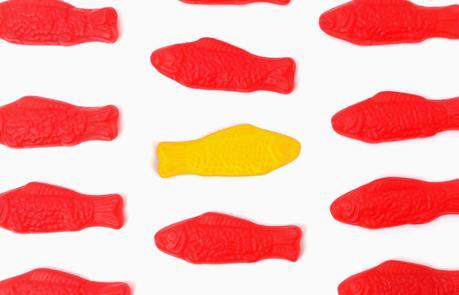
Food cravings are defined as frequent intense urges to eat specific types of food. There are people who deny their existence, but in truth, we've all felt them, some more than others. For example, some people have intense food cravings for sugar (probably the most common). However, salty foods, chocolate, junk food (pizza) are also common food cravings. Gary Taubes wrote about carb addiction in last week's New York Times.
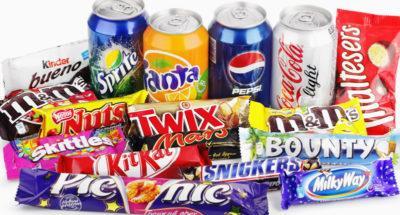
Unfortunately, food cravings are not free of such stigma. If you are unable to resist the call of the donut, then many people consider it your fault, and help is much harder to find. Karen Thompson and Bitten Jonsson on www.dietdoctor.com have written about sugar addiction and help many people beat it.
Do food cravings lead to obesity, or vice versa?
There's an association between obesity and food cravings, and the same holds for type 2 diabetes. The most consistent offenders are sweet foods, starchy foods, high-fat foods, and junk foods. But does food craving lead to obesity or does obesity lead to food cravings or both? This is a very important question, because understanding the cause (aetiology) is the key to successful treatment. So, what causes food cravings?
One theory is that food cravings develop in response to deficiencies of certain nutrients or overall food energy (calories). There is no scientific data that suggests this is true. In the case of obesity, clearly these patients do not lack overall food energy. There are those who suggest that there is a nutrient deficiency that causes obesity. This leads to calls for eating nutrient dense foods.
But, there's a clear and obvious problem here. What nutrient are we talking about? In the case of most junk foods, sweet foods and starchy foods, there are no essential nutrients contained here, so the body cannot 'crave' these nutrients for good health. Coca Cola has no essential nutrients. Donuts have no essential nutrients. Just as with vitamins, obesity is not a nutrient deficiency syndrome. It's not scurvy. It's not kwashiorkor.
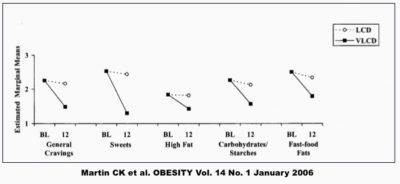
In this study, participants were put on a very low-calorie diet - 1200 calories per day in the low calorie group (LCD), and 800 calories per day in very low calorie (VLCD). You can see that severe caloric restriction was much, much more effective at reducing cravings than a higher-calorie diet. This is despite the fact that a 1200 calorie diet is already extremely strict.
My guess is that even more severe restriction helped to break many of the conditioned responses where the more lenient diet was not powerful enough to do so. The same effect is seen in juice fasting diets where an approximately 800 calorie 'fasting' diet helped reduce cravings where low-calorie diets alone could not.
Could fasting be the solution?
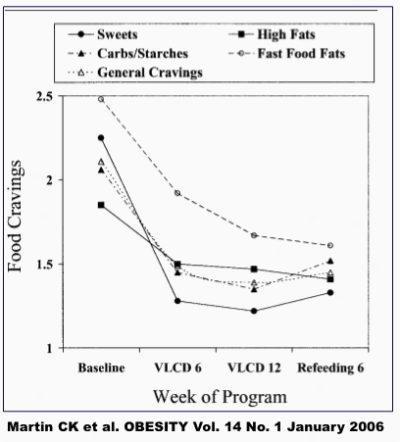
This effect is seen for all different types of foods whether it is sweets, starches, fatty foods or fast food. Over time, this effect does not diminish, but persists. Once you start refeeding, the effect starts to dissipate.
This concept extends to hunger. While cravings and hunger are different phenomena, they are clearly correlated to one another, so that decreased cravings can be expected to result in decreased hunger. But keep in mind that this effect is only seen with very severe caloric restriction. In fact, a comparison of a 500 calorie versus a 1200 calorie dieting schedule revealed significantly less hunger in the 500 calorie diet. That is, hunger is less, with less food. Counterintuitive, but consistent.
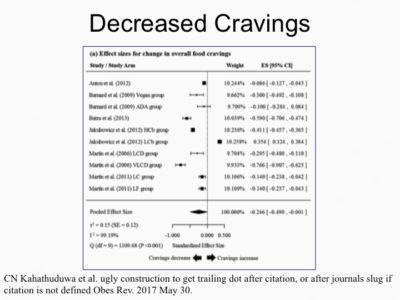
People who have cut out certain foods notice this, too. People who reduce their sugar intake very close to zero, for example, find that their sweet tooth goes away. If you eat more sugar, cravings don't get better - they get worse. It's like that itch - scratching it won't make it better - it will make it worse.
The application to fasting is obvious. Severe restrictions on food do not increase food cravings, but consistently decrease them - which is one of the keys to success. This is entirely consistent with our clinical experience. Contrary to almost everybody's expectation, fasting decreases hunger. Patients would always come back to our clinic and say "I think my stomach shrank. I eat a third of what I used to eat, and feel so full."
That's great news, because now you are working with your body to lose weight instead of against it. One of the persistent myths about fasting is that 'you will get so hungry that you will be forced to stuff your face with Krispy Kreme donuts'.
This is why people recommend that you eat 6 or 7 times throughout the day, in order to stave off those cravings. These people obviously don't have any practical experience, and don't understand the research which shows exactly the opposite. If you eat constantly, you are more likely to feed those cravings. If you fast, those cravings will shrivel away. Maybe. At least it's worth a shot.

